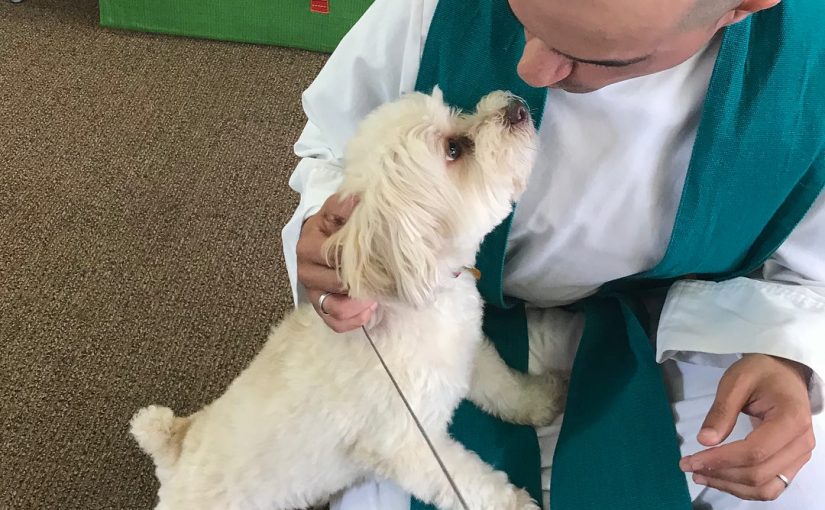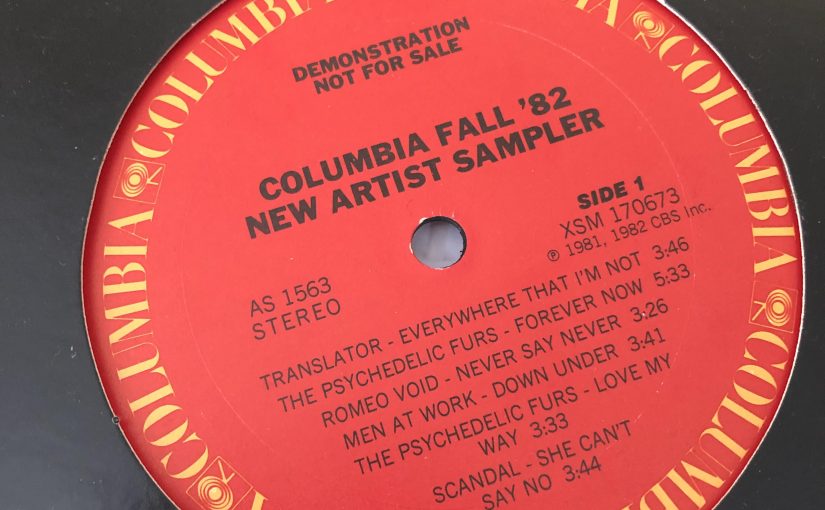Blessed be the God and Father of our Lord Jesus Christ, who has blessed us in Christ with every spiritual blessing in the heavenly places, just as he chose us in Christ before the foundation of the world to be holy and blameless before him in love. He destined us for adoption as his children through Jesus Christ, according to the good pleasure of his will, to the praise of his glorious grace that he freely bestowed on us in the Beloved. In him we have redemption through his blood, the forgiveness of our trespasses, according to the riches of his grace that he lavished on us. With all wisdom and insight he has made known to us the mystery of his will, according to his good pleasure that he set forth in Christ, as a plan for the fullness of time, to gather up all things in him, things in heaven and things on earth. In Christ we have also obtained an inheritance, having been destined according to the purpose of him who accomplishes all things according to his counsel and will, so that we, who were the first to set our hope on Christ, might live for the praise of his glory. In him you also, when you had heard the word of truth, the gospel of your salvation, and had believed in him, were marked with the seal of the promised Holy Spirit; this is the pledge of our inheritance toward redemption as God’s own people, to the praise of his glory.
Ephesians 1:3-14
My sermon from the 8th Sunday after Pentecost (July 15, 2018) on Ephesians 1:3-14. Listen to the recording at the bottom of the page or read my manuscript below.
****************************
Have you ever tried to get your mouth to stop talking? Like, say you’re at a job interview or on a first date with someone you actually like. You’re doing your best to make a good first impression – so you make eye contact, answer their questions, and make sure you act as if you’re happy to be there. But sometimes we forget to turn on that part of our brain that gives other people a chance to speak. We talk…and talk….and talk. Our inner monologue, that little voice inside our head, tells us to stop talking but we just can’t. The words spill out, like a flood. If we’re lucky, the person we’re talking to understands our enthusiasm and they give us another chance to make a new first impression. But usually the person we’re talking to walks away with a look on their face that destroys all hope for any future conversation. One of the first things we learn when talking to other people is that we need to pause and create a space where others can speak. We need to stop talking. Because it’s in the small periods of silence when we discover how to listen to each other. When we stop filling our corner of the world with our own words, we hear, for the first time, thoughts, ideas, and stories from others that we never noticed before. It’s in the pauses and in the silence where we create opportunities to learn about, and connect with, each other.
Which is why these eleven or so verses from the opening chapter of our second reading, the letter to the Ephesians, is so weird. Because if you look at our english translation of this text, we see plenty of commas, periods, and other punctuation marks that slow the words down. There is no flood because the verses have pauses and silences inserted into them. But the ancient greek text behind our english translation has….none of that. These verses are one long and unbroken sentence. So imagine, for a moment, reading this text differently. Start like we did with “Blessed be the God and Father…” but when you get to the end of verse 4, right where it says “blameless before him in love,” don’t stop to take a breath. Don’t pause. Instead, head straight into, “He destined us will…” and then keep going. When we get to “he lavished on us;” continue “with all wisdom and insight.” These verses do not pause. They don’t take a break. They keep going, faster and faster until, by verse 11, we’re stumbling over the words. Our inner monologue wants us to stop, it needs us to slow down, but when verse 13 shows up, we can no longer keep straight who is in him, who is you, who believed, and who has been marked and who hasn’t. Instead, at the end of verse 14, everyone collapses into a heap, exhausted, worn out, and confused. Together we take deep breaths, trying to get our bearings, and wondering what it was that we just read and heard. Any of the spaces and boundaries between us – like our beliefs, our gender, our age, and our social and economic class – has been temporarily replaced by a flood of words that started with a blessing and ended with God’s praise. We are, whether we realize it or not, united by a run-on sentence that fills the space between us and forms us into a new community through our eternal connection to Jesus Christ.
Which is, I think, the reason why the letter to the Ephesians starts this way. The author, at this point, isn’t interested in creating new periods of silence, new spaces, where we can connect and deepen our relationship with God. Because when we stop talking, when we create a period of silence that someone else fills up, that’s something we did. It’s an act of connection that we choose to create. But the author wants to begin this letter by first pointing out how God is connected to us in all of our moments, including those moments we didn’t choose, and those moments where we, at first, didn’t notice that God was with us. These kinds of moments are varied and sometimes, in hindsight, easy to name. When we look back and reflect on specific moments in our lives, we can see how Jesus was there when we were sad or afraid. It’s after the fact when we recognize how Jesus carried us through those parts of our lives when we couldn’t feel God’s love for us. When we look back at the brokenness that we lived through – or the brokenness that we’ve learned to live with – that’s usually the moment when we can see how Jesus made a difference in our lives. But Jesus doesn’t only show up when we’re having a hard time. And he isn’t only visible after terrible things have happened. No, Jesus is here – right now. And not only is Jesus here but your connection to God is something that didn’t started at your baptism or your confirmation or when you finally stopped running from God and said, in a prayer, that you believe. Your connection to God, your relationship with Jesus Christ, was something God promised to you before the world was made. The space that you are living in, the space that we occupy and fill with our words, thoughts, emotions, and experiences – all of that, is connected and filled up, by God. There are no moments of our lives where God isn’t present. There are no periods of time when grace upon grace isn’t being given to us. All of us, as we are, are beloved children of God. And this relationship doesn’t depend on what we look like or what exactly we believe. It doesn’t depend on our age, how much money we have, what grades we got in school, or even who we love. The spaces we create to keep us separated from each other are spaces that, in Christ, God fills up. Each of us, as we are, are essential and precious to God. We are more than our bank account, more than our last health screening, more than what other people say about us, and even more than our citizenship or our nationality. You are, grace upon grace, part of God’s family. You are a part of Jesus Christ. And you are always necessary. You are necessary for this church. You are necessary for what God is doing in the world. And you are connected to a worldwide communion of believers that is rooted in love. This love doesn’t stop even in those moments when we are embarrassing ourselves with the flood of words coming out of our own mouths. And this love hasn’t stopped when the only words we can speak are, “God, why me?” In our deep desire to connect to God, to notice God, to understand what it is God wants from us – we first have to recognize that God is with us in every moment of our lives – and that we have been, and always will be, loved.
Amen.
Podcast: Play in new window | Download









